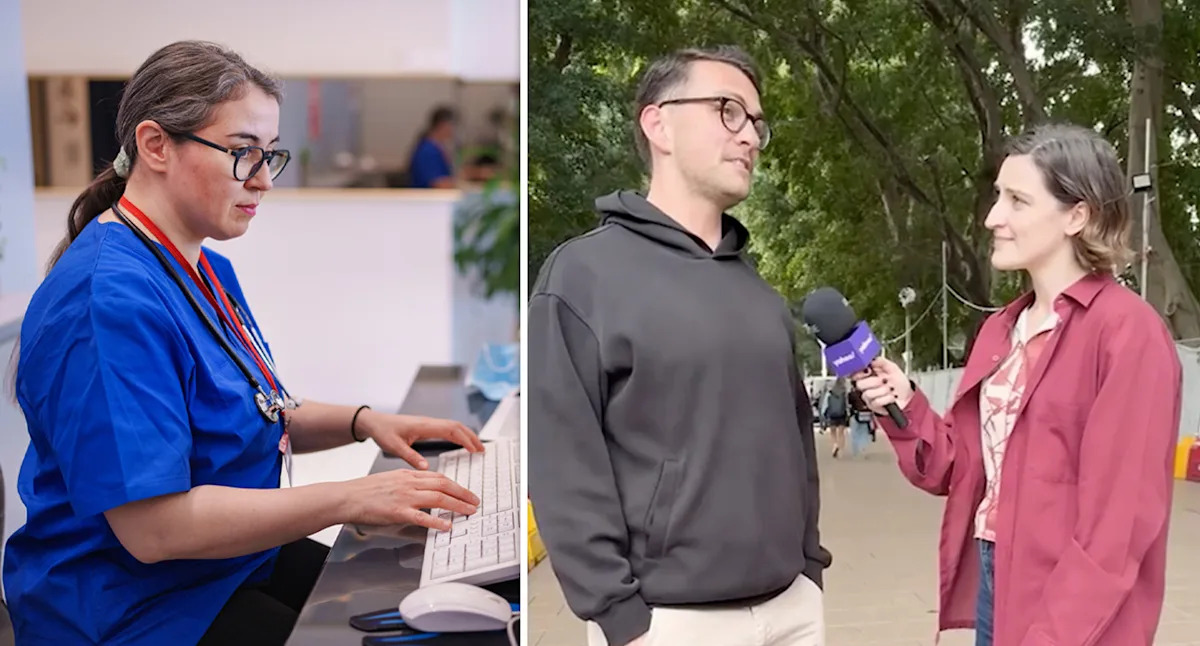Doctors are increasingly using artificial intelligence (AI) to take notes for them during patient consultations, and while there are major benefits, some are feeling apprehensive as the advanced technology seeps into the Australian healthcare industry.
Last week, Australia’s Therapeutic Goods Administration (TGA) announced it is “stepping up its efforts” to regulate AI scribes as they become increasingly more prevalent. AI scribes are used in doctors’ rooms to record conversations between patients and doctors, with the intention that this form of note-taking will free up the doctor to focus on the person in front of them, as well as help with the efficiency of medical records.
Farah Magrabi, Professor of Health Innovation at Macquarie University, told Yahoo News that “over 50 per cent of Australian GPs are using or intend to use AI scribes to help write their notes”. She says since it was first introduced over two years ago, it’s been a win-win for all involved.
“It frees healthcare professionals up to focus on the patient in front of them,” she told Yahoo News. “Often they need to rush between consultations to complete their notes… For the patient, too, they get the undivided attention of the doctor.
“There’s nothing more frustrating than waiting weeks, and then they seem more focused on their computer to complete their notes as they’re seeing you.”
Australians divided about AI listening to doctor consult
Yahoo News asked people on the streets of Sydney on Thursday what they thought about having AI as a third person in the doctor’s room, and reactions were mixed.
“I think the recording, rather than writing for doctors, is a great asset. It’s very important when you go to the doctor, the doctor looks at you and not at the keyboard,” one man told Yahoo. Another said they were fine with the concept, as long as it was only used for note-taking and the overall accuracy of records was increased.
Two healthcare professionals were also asked about AI integration, and both responded enthusiastically. A nurse said she was “all for AI” within a healthcare setting and admitted that both her physio and her dog’s vet use AI scribes during appointments. A woman who works in pharmaceuticals said she was “very pro AI in the doctor’s consult”.
However, others were hesitant, with patient privacy being a major concern among people asked.
“What does AI do with that information?” one man questioned. Another said that “more efficiency” for overworked doctors is a good thing, but stated she thinks “AI poses some problems” in the healthcare industry, while also pointing to the environmental impacts of AI.
“I suppose it would be good if it’s done correctly and not used against you,” a third person said.
Patient privacy is a major concern with doctors using AI scribes
As is the case with most data collection, the use of AI makes some Australians uncomfortable. Especially since intimate details, such as health diagnoses and social issues, are shared during one-on-one GP consultations.
Professor Magrabi said it was understandable that people feel like this, but using AI within the healthcare industry is arguably safer than using it in other ways, since it needs to adhere to “very strict regulations”.
“Patient privacy is upheld in healthcare by very strict regulations, and those same privacy regulations, the Privacy Act, which is in place nationally, applies to anything that’s done with AI as well,” she said. “Doctors being transparent that they’re using it — informing the patient and gaining consent — that’s really important as well.”
The TGA is launching a review of AI scribes amid concerns some systems are introducing diagnostic and treatment suggestions, meaning it would be considered a medical device, and should therefore be formally regulated as such before being sold or used.
There are multiple versions of medical AI scribe software used in Australia, such as Heidi Health and Lyrebird Health. Dr Thomas Kelly, CEO and co-founder of Heidi Health, told the ABC data recorded by the software in Australia is stored in “compliance with the healthcare regulations and privacy policies of the region”. Information Age reported Kelly welcomed TGA’s “sharpened compliance” review.
Yahoo News reached out to Heidi Health and Lyrebird Health for comment.
AI used in other ways in Australian healthcare
Other than scribes used for note-taking, AI is helping healthcare professionals in other ways. Professor Magrabi explained that AI is used in medical imagery to help doctors quickly detect issues for critical treatment.
“AI tools have been developed for a number of years now [within the healthcare industry]. We have a number of registered medical devices that incorporate AI, like helping doctors interpret X-rays… It helps point things out and speed things up… Having AI is extremely useful because it could point out things they might otherwise miss,” she said.
“It’s vitally important that whoever is using the tool carefully checks before they accept whatever the AI is telling them… It’s a tool to assist, they [the doctors] are still in charge.”
Do you have a story tip? Email: newsroomau@yahoonews.com.
You can also follow us on Facebook, Instagram, TikTok, Twitter and YouTube.


